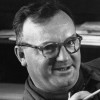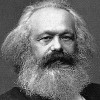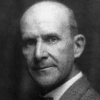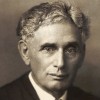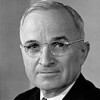Many people believe that possession of unchallenged economic power deadens initiative, discourages thrift and depresses energy; that immunity from competition is a narcotic, and rivalry is a stimulant, to industrial progress; that the spur of constant stress is necessary to counteract an inevitable disposition to let well enough alone. Such people believe that competitors, versed in the craft as no consumer can be, will be quick to detect opportunities for saving and new shifts in production, and be eager to profit by them. […] True, it might have been thought adequate to condemn only those monopolies which could not show that they had exercised the highest possible ingenuity, had adopted every possible economy, had anticipated every conceivable improvement, stimulated every possible demand. No doubt, that would be one way of dealing with the matter, although it would imply constant scrutiny and constant supervision, such as courts are unable to provide. Be that as it may, that was not the way that Congress chose; it did not condone “good trusts” and condemn “bad” ones; it forbad all.
Learned Hand (1872-1961) American jurist
United States v. Aluminum Co. of America, 148 F.2d 416, 427 (1945)
(Source)
Quotations about:
big business
Note not all quotations have been tagged, so Search may find additional quotes on this topic.
These executives, who have risen to the top, have come to be responsible trustees, impartial umpires, and expert brokers for a plurality of economic interests, including those of all the millions of small property holders who hold stock in the great American enterprises, but also the wage workers and the consumers who benefit from the great flow of goods and services. These executives, it is held, are responsible for the refrigerator in the kitchen and the automobile in the garage — as well as all the planes and bombs that now guard Americans from instant peril. […] Full of the know-how that made America great; efficient, straightforward, honest, the chief executives, it is often said, ought really to be allowed to run the government, for if only such men were in charge there would be no waste, no corruption, no infiltration.
C. Wright Mills (1916-1962) American sociologist, academic, author [Charles Wright Mills]
The Power Elite, ch. 6 (1956)
(Source)
In England it is not ungentlemanly to steal halfpennies from children, and industrial interests, it may be assumed, will oppose any reform which interferes with the supply of cheap juvenile labour.
In the councils of government, we must guard against the acquisition of unwarranted influence, whether sought or unsought, by the military-industrial complex. The potential for the disastrous rise of misplaced power exists and will persist.
Dwight David Eisenhower (1890-1969) American general, US President (1953-61)
“Farewell Address” (17 Jan 1961)
(Source)
I hold it to be our duty to see that the wage worker, the small producer, the ordinary consumer, shall get their fair share of the benefit of business prosperity. But it either is or ought to be evident to everyone that business has to prosper before anybody can get any benefit from it.
I believe in individualism. I believe in it in the arts, the sciences and professions. I believe in it in business. I believe in individualism in all of these things — up to the point where the individualist starts to operate at the expense of society.
It is a basic economic proposition that as long as a relatively few men own the railroads, the telegraph, the telephone, own the oil fields and the gas fields and the steel mills and the sugar refineries and the leather tanneries — own, in short, the sources and means of life — they will corrupt our politics, they will enslave the working class, they will impoverish and debase society, they will do all things that are needful to perpetuate their power as the economic masters and the political rulers of the people.
Eugene V. Debs (1855-1926) American union leader, activist, socialist, politician
“The Issue,” Speech, Girard, Kansas (23 May 1908)
(Source)
There once was a time in history when the limitation of governmental power meant increasing liberty for the people. In the present day the limitation of governmental power, of governmental action, means the enslavement of the people by the great corporations who can only be held in check through the extension of governmental power.
Theodore Roosevelt (1858-1919) American politician, statesman, conservationist, writer, US President (1901-1909)
Speech, San Francisco (14 Sep 1912)
(Source)
The prevalence of the corporation in America has led men of this generation to act, at times, as if the privilege of doing business in corporate form were inherent in the citizen; and has led them to accept the evils attendant upon the free and unrestricted use of the corporate mechanism as if these evils were the inescapable price of civilized life, and, hence to be borne with resignation.
The only way in which our people can increase their power over the big corporation that does wrong, the only way in which they can protect the working man in his conditions of work and life, the only way in which the people can prevent children working in industry or secure women an eight-hour day in industry, or secure compensation for men killed or crippled in industry, is by extending, instead of limiting, the powers of government.
Theodore Roosevelt (1858-1919) American politician, statesman, conservationist, writer, US President (1901-1909)
Speech, San Francisco (14 Sep 1912)
(Source)
So long as governmental power existed exclusively for the king and not at all for the people, then the history of liberty was a history of the limitation of governmental power. But now the governmental power rests in the people, and the kings who enjoy privilege are the kings of the financial and industrial world; and what they clamor for is the limitation of governmental power, and what the people sorely need is the extension of governmental power.
Theodore Roosevelt (1858-1919) American politician, statesman, conservationist, writer, US President (1901-1909)
Speech, San Francisco (14 Sep 1912)
(Source)
Probably the greatest harm done by vast wealth is the harm that we of moderate means do ourselves when we let the vices of envy and hatred enter deep into our own natures. But there is another harm; and it is evident that we should try to do away with that. The great corporations which we have grown to speak of rather loosely as trusts are the creatures of the State, and the State not only has the right to control them, but it is duty bound to control them wherever the need of such control is shown.
All of you, I am sure, have heard many cries about Government interference with business and about “creeping socialism.” I should like to remind the gentlemen who make these complaints that if events had been allowed to continue as they were going prior to March 4, 1933, most of them would have no businesses left for the Government or for anyone else to interfere with — and almost surely we would have socialism in this country, real socialism, not the kind they define.


